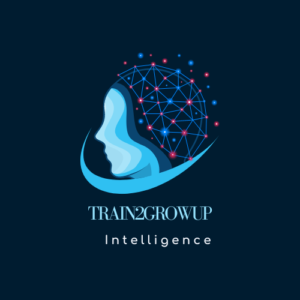Python Development Overview
Why Join this Program?
High Demand and Career Opportunities
Skilled web developers are in high demand across various sectors, including finance, healthcare, education, and entertainment. A program in web development equips you with the essential skills and knowledge to enter a field with opportunities, competitive salaries, and the potential for career advancement.
Versatility and Innovation
Web development is a versatile field that allows you to work on a wide range of projects, from mobile apps and websites to complex enterprise systems.
Key Features of Python Development
- Readability
- Versatility
- Extensive Libraries
- Cross-Platform
- Asynchronous Programming
- Control Structures
Python Development Program Details
Learning Path:
A comprehensive “Python Development” course typically covers a range of topics designed to take learners from basic to advanced proficiency in Python programming. Here’s a detailed outline of a typical Python Development course
By the end of this course, participants will be able to:
- Understand and use core Python programming concepts.
- Develop and debug Python applications.
- Work with data using Python libraries.
- Implement web applications and APIs using Python frameworks.
- Apply Python for automation and scripting tasks.
- Beginners with no prior programming experience
- Intermediate programmers looking to specialize in Python
- IT professionals and data analysts seeking Python skills
- Basic computer literacy
- No prior programming experience required
- Overview: Getting started with Python programming.
- Topics Covered:
- Introduction to Python: History and features
- Installing Python and setting up the development environment
- Running Python scripts and using the interactive shell
- Basic syntax: Variables, data types, and operators
- Overview: Building blocks of Python programs.
- Topics Covered:
- Conditional statements:
if,elif,else - Looping structures:
for,while - Functions: Defining, calling, and returning values
- Scope and lifetime of variables
- Lambda functions and higher-order functions
- Conditional statements:
- Overview: Working with different types of data collections.
- Topics Covered:
- Lists, tuples, sets, and dictionaries
- List comprehensions and generator expressions
- Working with built-in data structures
- Understanding and using the
collectionsmodule
- Overview: Principles of OOP and their application in Python.
- Topics Covered:
- Classes and objects: Creating and using classes
- Inheritance: Extending classes and method overriding
- Encapsulation and polymorphism
- Using special methods (
__init__,__str__,__repr__)
- Overview: Reading from and writing to files.
- Topics Covered:
- File operations: Opening, reading, writing, and closing files
- Working with different file formats (text, CSV, JSON)
- Handling exceptions and errors during file operations
- Using the
osandshutilmodules for file and directory manipulation
- Overview: Organizing and managing code in Python.
- Topics Covered:
- Importing and using modules and packages
- Creating custom modules and packages
- Understanding the Python Package Index (PyPI)
- Using virtual environments to manage dependencies
- Overview: Managing and resolving errors in Python code.
- Topics Covered:
- Exception handling with
try,except,finally - Debugging techniques: Using print statements, logging, and debuggers
- Writing and running unit tests with
unittestandpytest
- Exception handling with
- Overview: Building web applications using Python frameworks.
- Topics Covered:
- Introduction to web frameworks: Django and Flask
- Creating and managing web applications
- Handling web forms and user input
- Building RESTful APIs with Flask or Django REST Framework
- Deploying web applications to cloud platforms
- Overview: Using Python for data analysis and automation.
- Topics Covered:
- Data manipulation with Pandas
- Data visualization with Matplotlib and Seaborn
- Introduction to machine learning with Scikit-learn
- Writing scripts to automate tasks and processes
- Web scraping with BeautifulSoup and Scrapy
- Overview: Exploring advanced concepts and techniques.
- Topics Covered:
- Asynchronous programming with
asyncio - Working with databases using SQL and SQLAlchemy
- Understanding and using decorators and context managers
- Memory management and performance optimization
- Asynchronous programming with
Course Duration:
Typically: 8 to 16 weeks, depending on the intensity and depth of the course.
Skills Covered
- Syntax and Semantics
- Data Types and Variables
- Control Structures
- Functions
- Encapsulation
- Classes and Objects
- Inheritance
- Polymorphism
- Error Handling
- File Handling
- Data Manipulation
- Machine Learning


